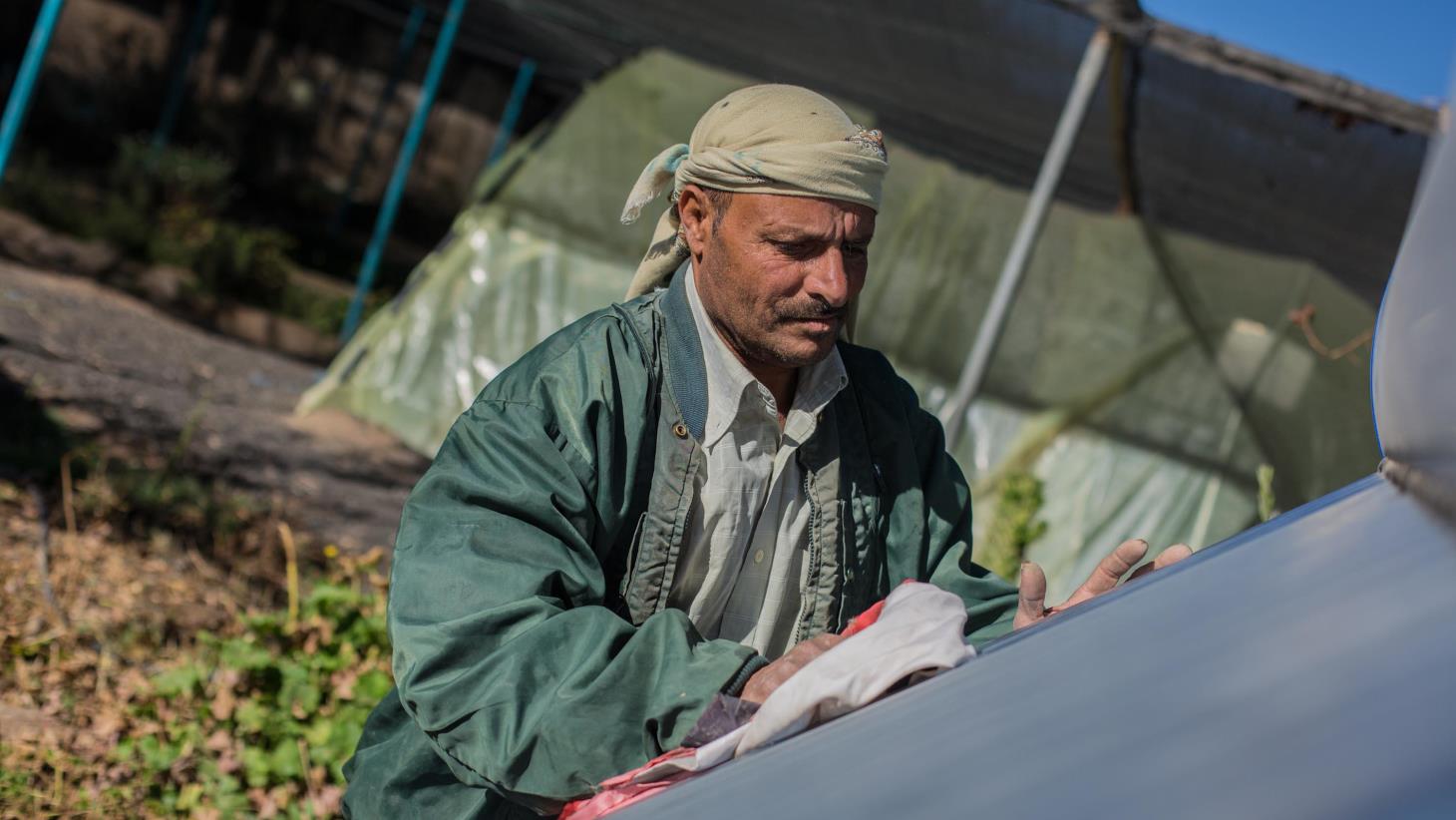FAO improving energy access to strengthen resilience through the Safe Access to Fuel and Energy initiative

FAO is working to develop sustainable solar irrigation and off-grid renewable energy application for the agriculture sectors.
2 October 2018, Cairo, Egypt – The Food and Agriculture Organization (FAO) of the United Nations in the Near East and North Africa (NENA) region is working to improve energy access to strengthen resilience through the Safe Access to Fuel and Energy (SAFE) initiative.
In light of this, FAO has held today a webinar to sensitize country offices in the NENA region on the SAFE approach to build resilient livelihoods through improved access to fuel and energy during emergencies and protracted crises.
FAO’s approach on SAFE aims at satisfying the fuel and energy needs for cooking, heating, lighting, and powering in a safe and sustainable manner, without fear or risk to health, well-being, and personal security of crisis affected populations.
Energy is a crucial enabler for humanitarian relief and development. It is intrinsically linked to, and has multiplier effects on issues such as food security, protection, health, livelihoods, sustainable management of natural resources, and resilience to climate change.
In the NENA region, energy plays a central role in guaranteeing safe and secure access to food and utilization. In this context, FAO is working to establish energy scenarios for cooking and other uses in displacement settings, supporting sustainable bioenergy systems (biogas, briquettes, pellets, or wood fuel), and developing sustainable solar irrigation and off-grid renewable energy application for the agriculture sectors.
The webinar was held within the framework of the Country Support Process jointly coordinated by the Regional Initiative on Building Resilience for Food Security and Nutrition (RI-FSN) and the Strategic Programme 5 (SP5) of increasing the resilience of livelihoods to threats and crises with the support of the Climate and Environment Division (CBC). The event was organized in collaboration withKORE- the knowledge sharing platform on resilience.
